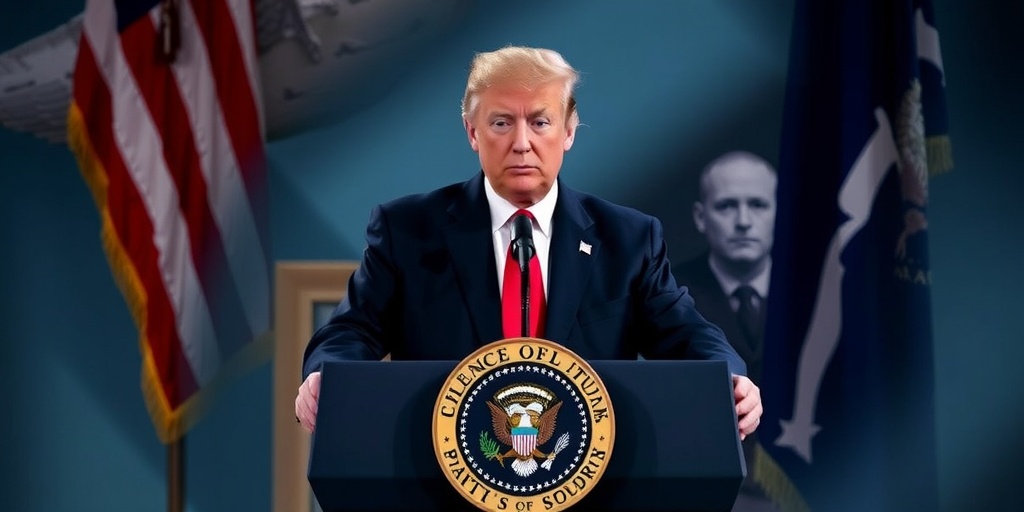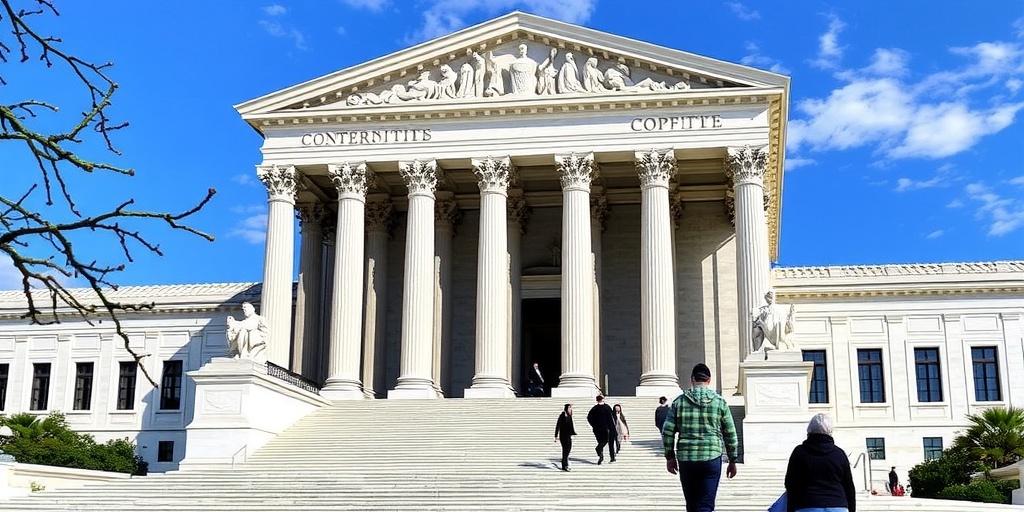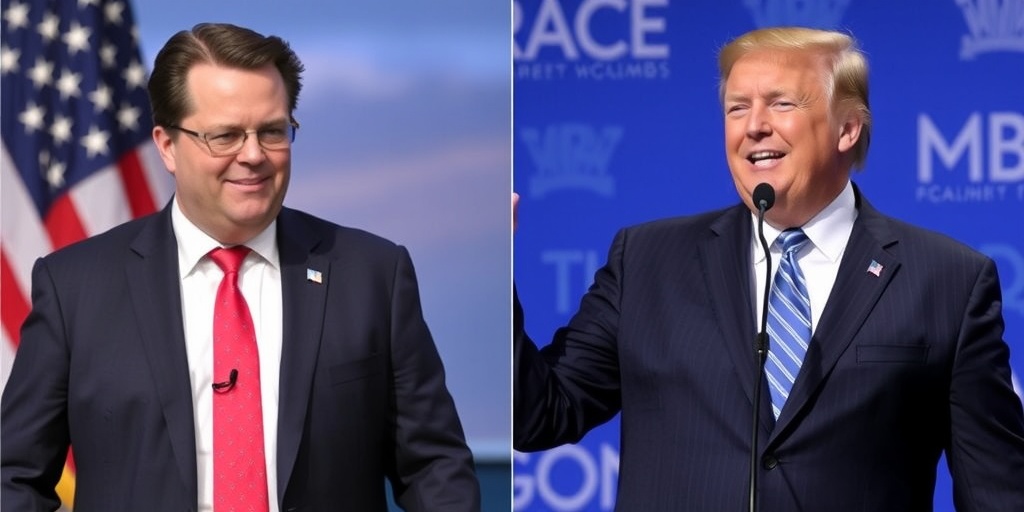Now Reading: Trump Aims to Accelerate Deportations with Alien Enemies Act
-
01
Trump Aims to Accelerate Deportations with Alien Enemies Act
Trump Aims to Accelerate Deportations with Alien Enemies Act

Trump Plans to Invoke Alien Enemies Act for Immigrant Deportation
Former President Donald Trump is reportedly preparing to utilize an obscure wartime law, the Alien Enemies Act of 1798, to expedite the deportation of immigrants from the United States. This move, which sources highlighted could come as soon as Friday, coincides with a speech Trump is expected to deliver at the Justice Department. The proposed action is anticipated to grant him expansive authority to remove undocumented immigrants, potentially bypassing traditional due process rights—a strategy likely to face legal challenges.
The decision to invoke this law appears to be part of an aggressive immigration strategy aimed at targeting individuals suspected of having affiliations with gangs or criminal organizations. Sources familiar with Trump’s plans have indicated that the focus will specifically be on immigrants believed to be connected to dangers posed by gang violence, a stance that has been central to his immigration agenda since his initial campaign for the presidency.
During his campaign, Trump pledged to initiate what he termed the "largest deportation operation in U.S. history." This pledge reflects his administration’s ongoing concerns over what they perceive as inadequate progress in deportation efforts. By leveraging the Alien Enemies Act, Trump seeks to address these concerns and solidify his commitment to tough immigration policies.
Understanding the Alien Enemies Act
The Alien Enemies Act permits the summary deportation of individuals from nations with which the United States is at war, as well as those who have invaded the country or engaged in "predatory incursions." This law has historical precedence, having been invoked during significant conflicts, most notably World Wars I and II, where it facilitated the detention and expulsion of immigrants based solely on their ancestry. Notably, Japanese Americans were interned during World War II under this legislation, a grim chapter in U.S. history that continues to resonate in discussions about civil liberties and national security.
The authority provided by the act allows for the arrest and removal of immigrants aged 14 and older without the need for a court hearing or an asylum screening. This significant reduction in due process raises alarms among civil rights advocates who warn of potential abuses and violations of human rights as a consequence of its use.
Challenges and Criticisms
While Trump’s strategy aims to bolster his immigration crackdown, legal experts point out the challenges he might encounter in implementing this plan. One criticism lies in the requirement that the authority must establish a direct link to the actions of a foreign government. Experts have raised questions about how effectively this law could be applied to deport individuals associated with domestic criminal enterprises, such as drug cartels, without explicitly proving an external threat.
Among the targeted groups are members of the Tren de Aragua, a Venezuelan gang that has been labeled a terrorist organization by the U.S. government. Trump’s administration has indicated that some individuals arrested under this proposed authority could be sent to Guantánamo Bay, Cuba—an aspect of the proposal that raises further ethical and legal concerns.
Echoing his commitment to combating crime associated with foreign gangs, Trump declared on his first day as president his intent to harness the full power of federal and state law enforcement to dismantle criminal networks operating within U.S. borders. This vision has been a driving force behind many of his policies, reinforcing a stringent approach to immigration and national security.
In summary, Trump’s potential invocation of the Alien Enemies Act is a controversial maneuver aimed at expediting deportations amidst rising concerns over gang-related crimes. The implications of this decision are profound, as it not only challenges longstanding principles of due process but also reflects a broader narrative around immigration in the United States. As legal obstacles loom, the true impact of this wartime authority on vulnerable immigrant populations remains to be seen, with advocates warning of a dangerous precedent that could follow.
As the situation develops, the debate surrounding national security and civil liberties is likely to intensify, drawing attention to the implications of such an authoritarian approach to immigration reform.
Stay Informed With the Latest & Most Important News
Previous Post
Next Post
-
 01New technology breakthrough has everyone talking right now
01New technology breakthrough has everyone talking right now -
 02Unbelievable life hack everyone needs to try today
02Unbelievable life hack everyone needs to try today -
 03Fascinating discovery found buried deep beneath the ocean
03Fascinating discovery found buried deep beneath the ocean -
 04Man invents genius device that solves everyday problems
04Man invents genius device that solves everyday problems -
 05Shocking discovery that changes what we know forever
05Shocking discovery that changes what we know forever -
 06Internet goes wild over celebrity’s unexpected fashion choice
06Internet goes wild over celebrity’s unexpected fashion choice -
 07Rare animal sighting stuns scientists and wildlife lovers
07Rare animal sighting stuns scientists and wildlife lovers





















